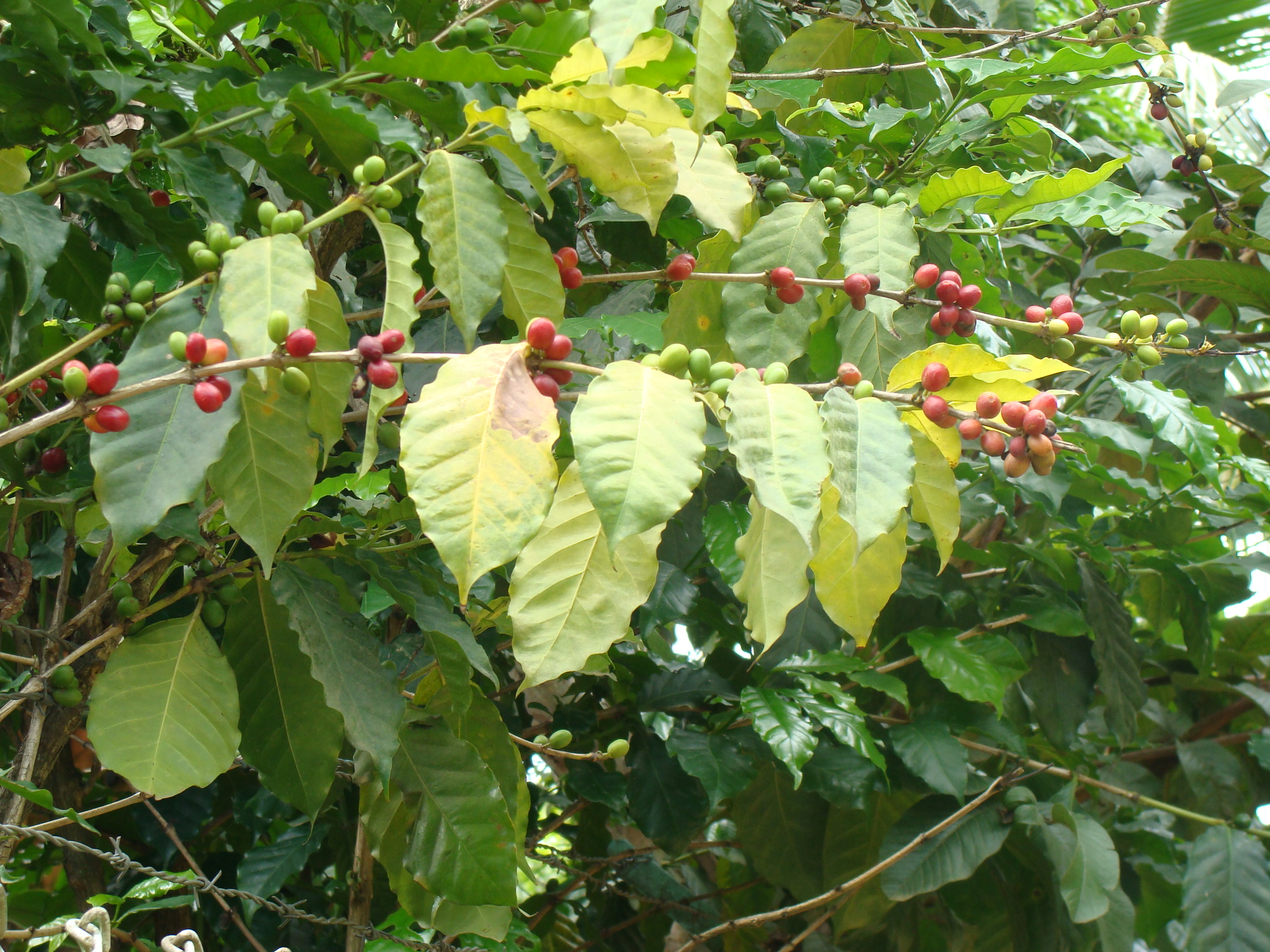
Pau Pámies Grácia, CC BY-SA 4.0
Venezuela
Coffee
(Coffea)

Pau Pámies Grácia, CC BY-SA 4.0
General Description / Cultural Significance
First introduced to Venezuela in the 1800s by Spanish conquistadors, coffee quickly evolved into a beloved and vibrant commodity enjoyed by people across the country. Thriving in the warm, fertile patches of soil beneath the trees lining the base of the Andes Mountains, the coffee plant became deeply woven into the fabric of Venezuelan culture.
Coffee’s influence in Venezuela extends beyond mere consumption. Iconic songs like “Moliendo Café” by Venezuelan music legend Hugo Blanco use coffee-themed lyrics to evoke the stillness and serenity of the Venezuelan landscape, portraying the act of grinding beans as a symbolic representation of the passage of time.
Beyond its role in music, coffee holds a significant place in Venezuelan households, symbolizing hospitality. The post-lunch tradition of “merienda” typically includes a cup of coffee accompanied by sweets. Furthermore, offering guests coffee upon arrival is a customary practice, with declining such an offer potentially perceived as rude or inconsiderate.
At a broader societal level, coffee acts as a unifying force, fostering community among both locals and visitors. Events such as coffee tastings, barista competitions, and exhibitions featuring local growers from Venezuela and neighboring countries contribute to the communal spirit associated with coffee in Venezuelan culture.
Climate Change / Conservation Status
Between 2014 and 2015, the landscape of coffee production in Venezuela underwent a dramatic transformation. What was once a ubiquitous and lucrative commodity swiftly became a rare resource, plagued by a leaf-eating disease that ravaged coffee plants. The contagion spread relentlessly, forcing the country to depend on coffee-rich nations such as Nicaragua and Colombia to meet its supply needs. Faced with the dwindling local industry, numerous coffee farmers abandoned their livelihoods, opting to relocate to larger, more promising cities in pursuit of a fresh start.
Simultaneously, Venezuela grappled with a burgeoning public health emergency. The once robust malaria-prevention organization faltered under the weight of a staggering increase in cases, reaching approximately 100,000. Re-emergence of diseases long thought eradicated, including diphtheria and plague, compounded the crisis, leading to a surge in malnutrition cases. Regrettably, the decline in public health persists to this day, exacerbated by legal constraints that restrict allopathic physicians to practicing only through specialized post-graduate programs.
Presently, Venezuela’s contribution to the global coffee supply has dwindled to less than 1 percent, a consequence of enduring agricultural decay, the impact of climate change, and the persistent challenges posed by ongoing public health crises.
Alternate Names
Coffea
Java
Sources
Ambika Satija, Shilpa N. Bhupathiraju, Yang Hu, Qi Sun, Walter Willett, Rob M. van Dam, Frank B. Hu, Circulation, online November 16, 2015.
Americas, 1 September 2016, Accessed 7 June 2017. http://www.as-coa.org/articles/weekly-chart-coffee-production-and-climate-change-latin-america
“Association of Coffee Consumption with Total and Cause-specific Mortality in Three Large Prospective Cohorts,” Ming Ding,
Baribeau, Simone, “Venezuela’s Coffee Conundrum” Venezuelanalysis.com, 13 January 2006. https://venezuelanalysis.com/analysis/1569
Cultural Attaché, Consulate of Venezuela, New York, NY
Dinneen, Mark “Cultures and Customs of Venezuela” Greenwood Publishing, 1 September 2000
Finnegan, William “Venezuela, A Failing State” New Yorker, 14 November 2016. http://www.newyorker.com/magazine/2016/11/14/venezuela-a-failing-state
Kohut and Herrera. “As Venezuela Collapses, Children Are Dying of Hunger”. New York Times. Retrieved Jan 23, 2018, from https://www.nytimes.com/interactive/2017/12/17/world/americas/venezuela-children-starving.html?mtrref=www.google.com&gwh=E3B40FA0CC165E446BFA669898E4F027&gwt=pay
“Legal Status of Traditional Medicine and Complementary/Alternative Medicine: A Worldwide Review” World Health Organization, 2001. p. 71
“Navigating Origins: Venezuela” Roast Magazine, September/October 2006, pg. 102-3.
Fleischner, Nicki “Weekly Chart: Coffee Production and Climate Change in Latin America” Americas Society / Council of the
Polanco, Anggy. “Venezuelan Coffee Industry Bets on Unique Variety | Reuters.” Venezuelan Coffee Industry Bets on Unique Variety, 2 Aug. 2023, www.reuters.com/article/venezuela-coffee/venezuelan-coffee-industry-bets-on-unique-variety-idUSL1N39I1RJ/.

